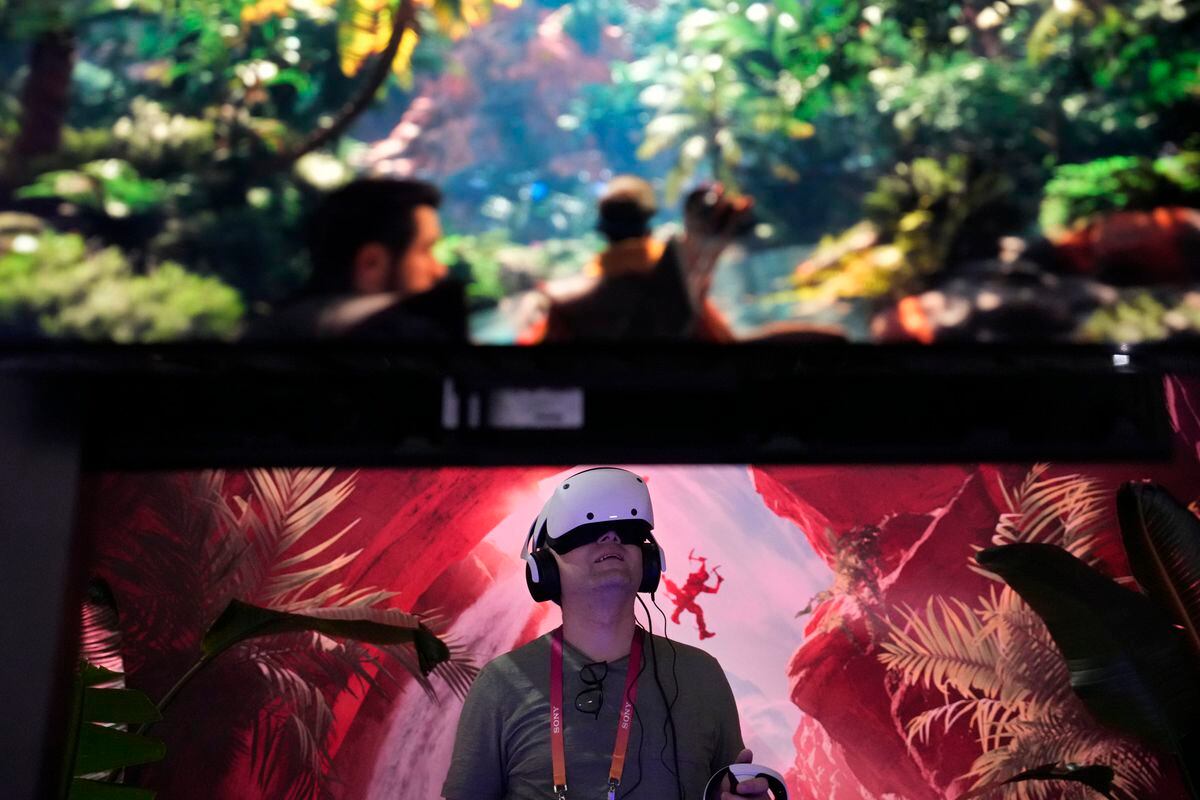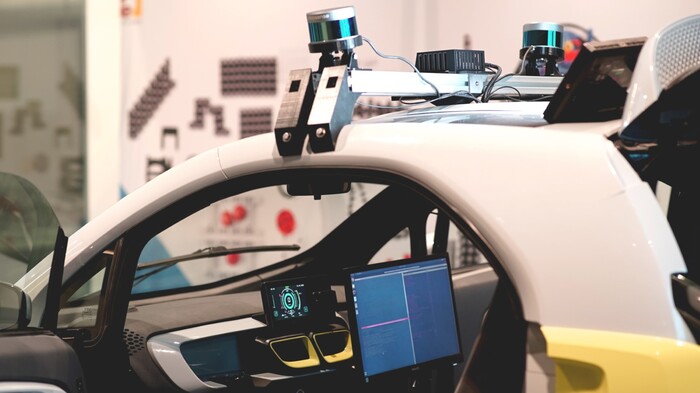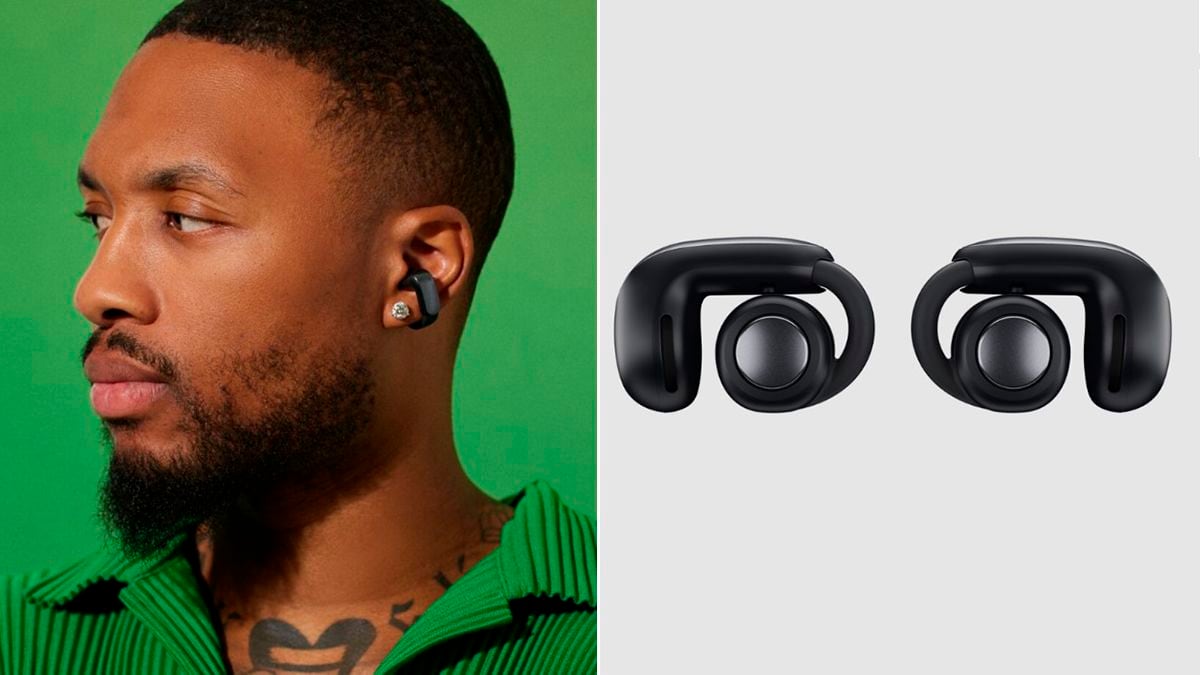CES, the most influential consumer electronics fair in the world, has recovered its splendor this year after two years of pandemic.
More than 3,200 exhibitors have gathered this week at various hotels and convention centers in Las Vegas.
This unmissable meeting for technology companies —in which such revolutionary inventions as CDs, high-definition television or 3D printers were presented in the past— is a prelude to the technological trends that are going to gain strength in the coming months.
Among them, some stand out such as the metaverse, web 3, digital health and sustainability.
business technological innovation
The tech industry faces multiple global challenges, as Steve Koenig, vice president of research at CTA, the association that organizes CES, points out: from issues in supply chains to those related to demand for semiconductors, inflation and shortages of labour.
Difficult times and economic recession "usually bring great innovations": "A powerful wave of technological change is coming."
In fact, according to his account, improvements are already taking place in the business sphere led by the adoption of artificial intelligence and 5G, mainly related to autonomous vehicles, the metaverse and automation.
“Both in this decade and in the 2030s we are going to see a lot of smart factories and hospitals, as well as fully automated farms and facilities,” he says.
From the metaverse to the web 3
Koenig insists that "the metaverse is closer than you think."
Although he considers that it is a term that is still “speculative”, he has no doubt that “it is a real trend, just like the Internet in 1990, although many of us did not know what it was”.
However, he believes that there has been a misconception of the metaverse, as it was believed to facilitate "hyper-immersive experiences similar to the movie
Ready Player One
."
That "is turning out not to be true, although there are different levels of immersion."
More and more companies are working to make these virtual spaces possible in which to entertain, shop or work.
In addition to all kinds of goggles, there are already haptic vests and gloves for users to feel the brush of a branch, punched in a fight, or even the impact of a shot.
Some companies like OVR Technology want to make it possible to smell the metaverse, for example, to play or relax.
"Whether we realize it or not, our sense of smell helps us navigate the world," the company says.
In addition to the metaverse, 2023 will also be the year of Web 3, the next phase of the Internet, which is decentralized thanks to
blockchain
technology .
This is stated by the CTA, which considers that it is "an ideal platform for the expansion of the metaverse."
“Like all major technology trends, Web 3 and the metaverse will unfold over several years,” he adds.
Transport and mobility
In 2023, electric vehicles are going to give a lot of talk, in addition to the development of batteries and charging systems, according to Koenig.
Other key innovations this year will be related to autonomous vehicles and the transformation of the in-car experience.
“We will see cars full of screens, which can be controlled by voice and are compatible with 5G networks,” he says.
Mercedes-Benz has presented Vision EQXX, an electric car that can travel more than 1,000 kilometers on a single charge. CAROLINE BREHMAN (EFE)
As Oliver Zipse, Chairman of the Board of Management of BMW, points out, the goal of manufacturers is to “transform the car into an intelligent companion”.
Companies like Bosch fill their cars with smart sensors to improve safety in it and try to make them increasingly customizable.
If last year BMW presented a car that changed color at the touch of a button, in this edition Volkswagen has shown a vehicle with a camouflage body that changes to the rhythm of the music.
At the fair, all kinds of autonomous vehicles have also been presented, some of them flying and aquatic.
digital health
“Many of us have witnessed the evolution of telemedicine during the pandemic and are building home health centers,” Koenig says.
More and more people are willing to use technology to take care of their health, according to the CTA.
The association indicates that users are interested in meditation and mindfulness apps, sleep monitoring apps, virtual and augmented reality, and online counseling and therapy platforms.
Tech giants and
startups
use technology to go from curing diseases to trying to prevent their appearance.
One of its objectives is that the user himself can detect health problems.
They range from apps that analyze a user's bowel movements or cough, to a patch that adheres to the skin, analyzes sweat and indicates when to drink water, a sensor that analyzes urine in real time, or a device the size of a a credit card that is used to make electrocardiograms.
A CES visitor tries out the iSync Wave EEG headset, which scans brain waves and analyzes them using artificial intelligence-based software and claims to be able to detect neurological problems.Rick Bowmer (AP)
Sustainability
One in three people in the world does not have access to drinking water, according to a report by the World Health Organization (WHO) and the United Nations Children's Fund (Unicef).
Technological innovations help address multiple sustainability challenges, according to Koenig.
For example, they can improve access to clean water, increase power generation, address food shortages and avoid waste, boost smart cities, or create more sustainable agricultural systems.
“Technology enables farmers to do more with fewer resources – doing more with less is the way to go,” says John May, president and CEO of John Deere Agriculture Company.
The expert predicts a new era of agriculture with technological advances that will help guarantee food security for the inhabitants of the planet.
An important challenge, since the world population reached 8,000 million people in November 2022 and is expected to reach 9,700 million in 2050, according to the United Nations.
You can follow
EL PAÍS TECNOLOGÍA
on
and
or sign up here to receive our
weekly newsletter
.







/cloudfront-eu-central-1.images.arcpublishing.com/prisa/64IMUBBOIZEUXMA6MUFZQMQHHE.jpg)





